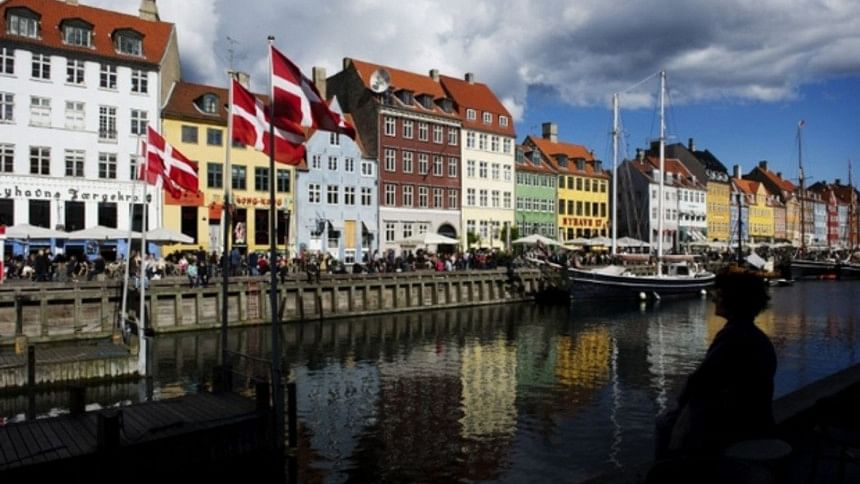Uprooting corruption: We can do better

The seasonal discussion on corruption is back in full swing following the release of Berlin-based Transparency International's global Corruption Perceptions Index (CPI), 2018.
Actually, a debate has arisen over the decline in Bangladesh's ranking in the CPI with some heat generated in the process. The chief of the Anti-Corruption Commission (ACC) likened the TI findings to a sea, as it were, demanding specifics or definitive pointers to sectors that he could act on by way of combating graft. But it appears that the methodology as well as the areas vulnerable to corruption have been explicated in some detail. Generally, "the CPI is probably the best known measure of global corruption"; If need be, we may seek further clarification from the TI headquarters. Yet, regardless of the ups and downs in the status of corruption, corruption on the whole remains endemic. And that's how it has to be dealt with resolutely, not verbally in an exhortative manner which falls on deaf ears as soon as the dust settles down.
With Bangladesh going down from the 143rd position in 2017 to 149th in 2018 among 180 countries, the dip in ranking may have had us frown. That we are ranked in the CPI as the second lowest in South Asia—India, Sri Lanka, and even Pakistan having edged ahead of us at 78th, 89th and 117th positions, respectively—is a shame. But if they could better their performance, we could too.
Our track record in containing corruption—though slow-paced—bears proof of a bounce-back. Bangladesh had been at the bottom of the CPI for five consecutive years between 2001 and 2005. In the following years, the country's ranking showed a modest but consistent pattern: 15th, 13th, and 14th from the bottom in 2016, 2015 and 2014 respectively. But while the position was 17th from the bottom in 2017, it took a tumble to 13th in 2018. This sharp dip in a year's time should stir us into stemming the tide and improving by leaps and bounds over the next few years.
It may be worthwhile to note from a research point of view that in 2014 and 2018, our country ranking declined to the 14th and 13th positions, respectively, from the bottom. Both being election years, one wonders whether the fall in performance was a matter of mere coincidence or whether it had to do with any unwitting election-year slack.
Having said that, may I echo what Dr Iftekharuzzaman, the chief of TI, Bangladesh, has said about the Bangladesh prime minister's significant words reflecting concerns over the depth and dimension of corruption in the country. On the occasion of releasing the AL's election manifesto, she spoke of zero tolerance against corruption and reiterated the message after the oath-taking ceremony, adding that "the corrupt have no place in the country." After the formation of the cabinet, she reiterated the warnings against corruption. In her address to the nation, alongside acknowledging the unease at all levels over corruption, the PM made an important four-point declaration. First, she urged self-purification of people involved with graft; second, elimination of corruption through a stern application of laws; third, uprooting corruption through an extensive application of digital technology; and fourth, and above all, due importance to be given towards resisting corruption through people's participation and media cooperation.
The top achievers like the Nordic countries (some certainly have scandals) run transparent democracies with a free press. A free and responsible press helps answerability of governance.
We think the prime minister's political will is embodied in her latest statements; now is the turn for adopting it through crafting a composite strategy drawing on inputs from all stakeholders to rid people of all forms of corruption. This will also tie up with the SDGs. We need to grow at above eight percent which can be ensured if we can retrieve two to three percent of growth lost through corruption without having to borrow externally at high interest rates.
We find Malaysian Prime Minister Mahathir Mohamad unveiling his ambitious five-year plan to clamp down on corruption in government. It requires, among other things, lawmakers and ministers to publicly declare their assets. The plan's measures would target the government's procurement process, law enforcement, judiciary, politics and business.
Shah Husain Imam is adjunct faculty at East West University, commentator on current affairs, and former Associate Editor, The Daily Star.
Email: [email protected]

 For all latest news, follow The Daily Star's Google News channel.
For all latest news, follow The Daily Star's Google News channel. 



Comments